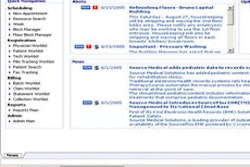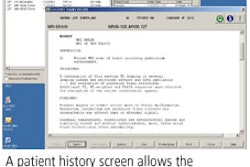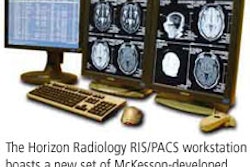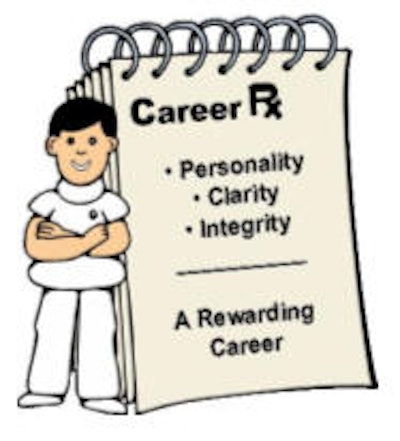
AuntMinnie.com is pleased to present part I of a series on how to survive, grow, and profit from a satisfying career in healthcare informatics by Dan T. Erler of executive search firm The Howard Group.
From the receptionist to the office of the president, healthcare is noticeably different in nearly every business sector. When you browse healthcare job postings, you find words such as "caring, compassionate, integrity, teamwork, shared success." Phrases such as "We provide support and training programs" and "Where your work makes a difference" are also used.
You rarely feel that sense of purpose, community, or compassionate expectation at the heart of thinking across other sectors in corporate America.
You may be already working in the field of healthcare informatics and simply need some new ideas to help crystallizing your thinking on how to progress your career. Over the next several months, I will take you on a journey of career-discovery designed to help you get ahead, and stay ahead -- even if you are not currently in informatics. I will share with you key advice and techniques I have refined since 1980 to help people be more successful and cover the career life cycle, which includes:
- Deciding if you are on the right career path or in the right job
- Doing the right things to build your career
- Discovering and being true to your talents and value proposition
- Securing proper references
- Properly planning and executing job searches
- Interviewing as a consummate professional
- Negotiating the appropriate offer (best is sometimes misleading)
- Accepting with grace, rejecting with style
- Resigning and moving on
- Starting right in your new job
- Navigating safe harbors throughout your career
I have developed a 12-stage process called "The Job Discovery Wheel" and will be unveiling the stages to you throughout this series. You will also find proven advice on overcoming rejection, obstacles, common and uncommon career mistakes, and snippets into industry-related career trends. As you know, an in-depth look always reveals more than a casual glance. We will start this process by spending some time in the first stage called, the "Awareness" stage. The Awareness stage focuses on helping you assess, evaluate, and properly purpose your career direction.
One of the first things to become aware of is: How do you decide if a healthcare informatics career is right or still right for you? I have discovered three personality perspectives that must be examined as a basis to establish a great career run.
How are you wired personally?
I worked with a person whose references indicated he was highly thought of and talented. He worked on a family-owned dairy farm and, at the tender age of 48, went back to school and picked up a technology degree. At 51-years-young, he started his new career in a hospital in mid-Michigan. He knew what he wanted: Since the age of 17 he loved computers and the idea of working in healthcare. Serving the family farm and his parents was his first priority. He waited until the time was right to move onto the career path of his dreams. His passion coupled with patience eventually fulfilled him.
Is healthcare the field you dreamed of pursuing? Do you take it personally? Does it fulfill you? Does it complete you in some way? If you are in healthcare because it pays well, is largely secure, and you happen to like the green and blue scrubs, then you have a job and you need to reassess your commitment to this field. To have a vibrant career, you need to have an ongoing passion for what you do. It needs more than your talents and contributions; it also demands heart, character, wisdom, and demeanor.
Are you wired for clarity?
Clarity has more to do with how you communicate to others verbally and nonverbally than how you understand a particular thread of thinking. How you communicate and what you actually communicate to others defines who you are and captures mutual respect.
Is it clear to your co-workers and management that you enjoy your profession, and further that you communicate it with the proper words, through the proper channels, and with the proper actions and tone? Do they receive you in a favorable manner? If a disconnect occurs between you and your co-workers, you can lose respect, become invisible to those around you, and the sense of community will be lost.
If that happens, you will feel uncomfortable and on the outside. If you find yourself in a disconnected state, then ask yourself if you are in the right situation. Begin to look at the causalities behind your feelings or the events that are occurring about you. If you feel you are slipping because you have lost the zeal for your job, then realize the impact you are having and quickly assess and address the situation.
Are you wired for integrity?
You may have acquired tremendous knowledge about PACS, electronic medical records (EMR), and hospital information systems (HIS), or spoken at the RSNA. You may be a RIS guru or have a purest view of the different modalities. However, without a sense of the responsibility for the lives involved, or the mission critical nature of the fact that the images and the data you work with belong to a real person, your chances for losing the edge are high. Integrity is that thing you do when no one else is looking. What you can control, without manipulation, defines your character. Healthcare informatics does not demand your integrity -- it asks you to ask it of yourself.
If you cannot demand and command excellence from yourself -- you need to consider another business sector to serve, one which does not ask so much from you.
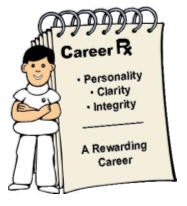
The answer to the question, "My career in healthcare informatics: Is it still right for me?" is: If you possess the qualities above and your compassion for people remains high, then stay in the field and develop an understanding of the successful pedigree for the role you are currently serving.
Broaden your knowledge of healthcare technology. Develop your business acumen, expanding into finance and accounting disciplines. Gain an appreciation for increasing profits, decreasing costs, and improving operational efficiencies. Learn how to communicate (with clarity) your value throughout the organization and thus avoid becoming invisible. Plan your steps and be loyal to your plan.
How do you do that? Throughout this series, we will systematically examine and guide you through the threads of thought necessary to align, or realign, your career with your plan.
In the next article of this series, we will continue in the Awareness stage and examine your current situation by discussing the topic: "Are you changing jobs for the right reason?"
By Dan T. Erler
AuntMinnie.com contributing writer
August 16, 2006
Erler is an executive recruiter and director of healthcare informatics for the Overland Park, KS-based executive search firm The Howard Group. He attended the U.S. Naval Academy, chased submarines, served as a "cultural expressions" instructor, hosted a talk-radio show focusing on senior healthcare, and has worked with the Salvation Army as a board member. He is also author of the forthcoming book, The Job Discovery Wheel -- A Career Journey From Awareness to a Bright Future, scheduled for publication in 2007.
Related Reading
3D brings opportunities to sonographers, August 4, 2006
PACS administrator certification efforts heat up, June 20, 2006
Technologists take advantage of 3D opportunity, March 25, 2006
Rad workload shows double-digit increase, September 22, 2005
PACS administrator role requires planning, vigilance, March 11, 2005
Copyright © 2006 Dan Erler





